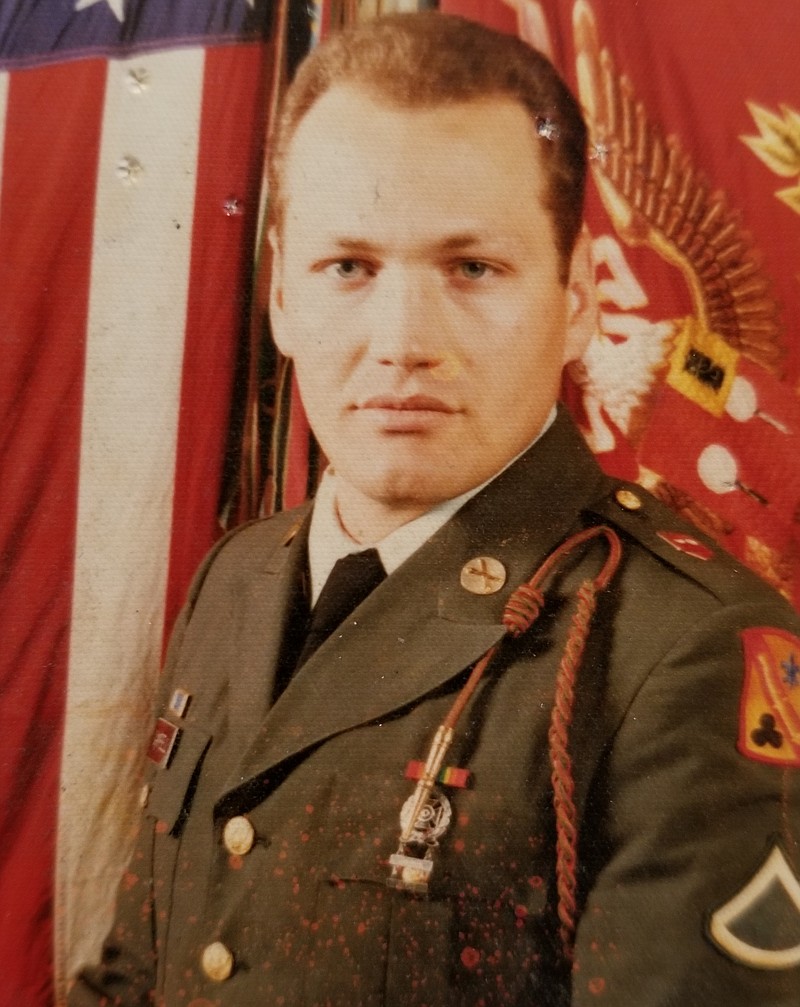Shortly after his graduation from high school in Memphis, Tennessee, in 1977, Charles Campbell chose to continue his education. He went on to earn his associate's degree in optometric technology before going to work for his father, who had become a successful optometrist in the Nashville area. For the next couple of years, Campbell listened while his father - a U.S. Army veteran of both World War II and Korea - encouraged him to consider enlisting in the military.
"My father thought that it might be a good way for me to acquire some benefits and experience," said Campbell, who now lives in Tipton. "So I went to the recruiter and enlisted in the U.S. Army in August of 1982."
As Campbell explained, when speaking with the recruiter, there was little thought given to the military specialty he wished to pursue other than avoiding an infantry assignment. When flipping through pages listing various military job fields, he pointed to the artillery and said, "That will work."
The first stop in his military journey was Fort Sill, Oklahoma, where he spent the next few weeks undergoing his basic training. He remained at the post for several more weeks to receive instruction to qualify as a cannon crewman.
"During the training, we learned to work with the mobile 155mm howitzers," he said. "Part of this included learning how to cut charges and set timers, load the howitzers, perform maintenance and to set up a defensive perimeter around the equipment."
When he first enlisted, Campbell specifically requested the opportunity to serve in Germany after his initial training was completed, which became a wish granted in December 1982. It was during this time frame he was assigned to 6th Battalion, 9th Field Artillery Regiment at Rivers Barracks in Giessen, Germany.
A few months after his arrival, they made the transition to 5th Battalion, 3rd Field Artillery Regiment. As the former soldier explained, almost immediately upon his arrival at his new duty assignment, he was placed in a section that had "nuclear capabilities."
He noted, "They wanted soldiers that had a little bit of education and we were drug tested every week. We were working with nuclear artillery shells and I learned to handle and assemble them by reading and studying a number of manuals," he added.
During this time frame, Campbell acknowledged there existed the threat of a Soviet attack in the region, and their responsibility was to serve as a deterrent and to "hold the line" in case of a confrontation, providing a delay so reinforcements could arrive.
The soldiers of his battery regularly participated in the Army Training and Evaluation Program (ARTEP), during which observers from the Pentagon evaluated their abilities to load, operate and protect the nuclear-capable artillery weapons under simulated combat conditions. On other occasions, his battery participated in exercises with West German and British forces to enhance their coordination and response capabilities in case of a military emergency.
"We were in the field quite a bit, participating in different exercises and basically trained all the time," Campbell recalled. "As part of the ARTEP review, we received a U.S. Army certification but had to go through regular evaluations to maintain that certification since there were a lot of protocols associated with working around nuclear artillery."
Because of the battalion's proximity to a NATO site where nuclear artillery rounds were stored, Campbell was often part of a team of soldiers tasked to serve as part of a reactionary force to provide security for the location.
In August 1984, his two-year enlistment ended and he was sent back to Fort Jackson, South Carolina, where he received his discharge from the U.S. Army. He then returned to Nashville and spent the next couple of years working for his father.
"One of the guys who I became friends with while in Germany, and who happened to serve in one of our neighboring batteries, was living in Mid-Missouri and told me that there were several employment opportunities available with the Department of Corrections," he said.
"I decided to make the move and worked a couple of years at the old Missouri State Penitentiary," Campbell said. "Then I left that and went to work for the Federal Bureau of Prisons for three years, which was interesting because I spent some time in Miami helping guard (Manuel) Noriega."
He soon returned to employment with the Missouri State Department of Corrections, and throughout the next several years, he worked at several facilities to include Renz Women's Prison, Jefferson City Correctional Center and Church Prison Farm. In 2018, Campbell retired from state employment while working at the Tipton Correctional Facility.
Since retiring, the former soldier has embraced his faith and is an active member of the Seventh Day Adventist Church. When reflecting on his service in the U.S. Army, Campbell noted it was an experience that not only helped improve his temperament, but it provided an insight to the relationships that evolve through a close-knit working environment.
"Prior to the Army, I had a harsh personality and could be very negative at times. However, my experience in the military whittled away the rough edges and taught me how to respect others and work together to accomplish tasks in the most efficient manner.
"I can recall," he added, "my father saying to me before I enlisted that if I were to serve in the military, I would have something wonderful to talk about in later years and I would become part of the special community (veterans) who would always be there for me when I needed them and he was right."
Jeremy P. mick writes on behalf of the Silver Star Families of America.

